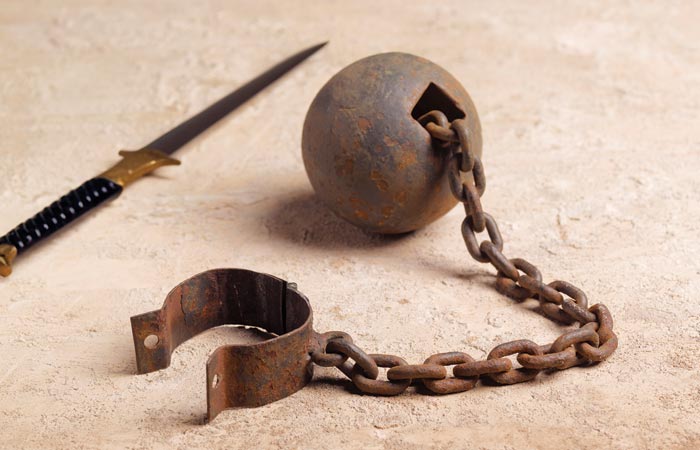We were halfway through my older son’s bar mitzvah year, and I’d been stumbling through an emotional landscape littered with caterers’ proposals, reception hall bills and unanswered e-mails from my wife demanding that I "please, please call the band and ask them if they are available on the 12th."
I’d also been picking my son up at his classmates’ bar or bat mitzvah celebrations, including some that combine the quiet good taste of a Fox reality series and the aesthetic subtlety of a Super Bowl half-time show.
Most of all, I’d been tormented by the feeling that, after years of smugly criticizing those who still insist on these "Goodbye, Columbus"-style extravaganzas, pride and peer pressure were going to drive me to arrange a simcha on a similar scale.
"Did you book the Lakers cheerleaders?" asked Rabbi Steven Leder, referring to a notorious bar mitzvah party in Los Angeles, where he is rabbi of Wilshire Boulevard Temple. I had been talking to Leder about his recent book on Jews and money, "More Money Than God: Living a Rich Life Without Losing Your Soul" (Bonus Books, 2004).
When I told him no, he said there was still hope.
Here’s his approach to prospective b’nai mitzvah parents: "I sit them down and say, ‘If you were an anthropologist studying the Jews and you were in attendance watching the Saturday morning ceremony, what are the values you would determine as belonging to the tribe of the Jews?’"
The typical family lists Torah, spirituality, prayer, family tradition.
"Then I draw a line on the blackboard, and write ‘Saturday evening.’ Same anthropologist, same tribe — now tell me what the anthropologist would say."
At first the families say all the acceptable things: family, celebration, joy. "And then it starts pouring out: materialism, sexuality, alcohol, conspicuous consumption."
"Listen, I’m not Amish, not a Puritan and I enjoy a nice meal and a glass of wine," Leder said. "The question is: How do we take the values in the morning and make sure they exist in the evening?"
Yes, rabbi. How? How?
Leder says you start by infusing the celebration with ritual. Havdalah on a Saturday night, perhaps a d’var Torah by a child or elder. And then he tells congregants about MAZON, the nonprofit that urges families to donate a percentage of the catering bill to their fight against hunger.
That I can do, I realize. But don’t I have to send the kids home with monogrammed pajama pants, holographic snow globes and glow-in-the-dark necklaces?
"Why not have a station where the kids make something that goes to the sick, poor or needy?"
Leder has another piece of advice for parents, this one more controversial. "In front of their children, I say, ‘You should never put children in an adult environment, a sexually charged environment.’ You’ve seen the spaghetti-strap dresses on 12-year-old girls. There are 100 kids at the party: Do you know what’s going on in the bathrooms?"
"I don’t care what your children want. You are the parent, you are in charge, you are paying for this. Talk about what you believe money is for and not for,’" he said.
I told Leder that my son had his heart in the right place and neither wants nor expects a bacchanal. Even still, won’t his relatives and friends be expecting more than Kiddush and a d’var Torah?
"Here’s the ironic thing," the rabbi said. "Everyone tries to be more unique and over-the-top than anyone else. And you know what, for the kids on the ‘circuit,’ this week feels the same as last week. The kids have become immune to it. If you want to be unique, do something down-to-earth and value-centered."
Leder has his own theories as to why, after years of rabbis’ exhortations, the super-sized bar and bat mitzvah is back in style. People are having kids later, he said, and have more money when their children come of age. Grandparents are older as well, and, with less chance that bubbe and zayde may make it to the grandchildren’s nuptials, b’nai mitzvah celebrations are starting to look and feel like weddings.
But with all these sociological pressures, what does Leder really think he’s achieving with his lists and sermons?
"I think I’m doing two things. I’m giving people with good values permission to hold out against the tide of pop culture," he said. Second, Leder is helping people be more thoughtful about the role money plays in their lives. "This is a subject most rabbis are afraid to talk about. They fear that big donors will be offended and funding sources will dry up."
But won’t they?
"I have a different view. The most generous supporters of the temple are people who have a very healthy and mentschy attitude toward money. I still feel we have an obligation to speak out."
So what did Leder do for his own son’s bar mitzvah? A barbecue at a camp run by his synagogue, a sleepover for the boy’s closest friends and a family brunch the next day.
"One of the proudest days of my life," Leder said, "is the day after, when he looked at me and said. ‘I really think we did this right.’"
Six months later, after my own son’s bar mitzvah, I think we could say the same thing. Noah read Torah like a pro, davened like an angel, and the Kiddush luncheon that followed was tasteful and tasty. And there was barely a spaghetti-strap in sight.






















 More news and opinions than at a Shabbat dinner, right in your inbox.
More news and opinions than at a Shabbat dinner, right in your inbox.